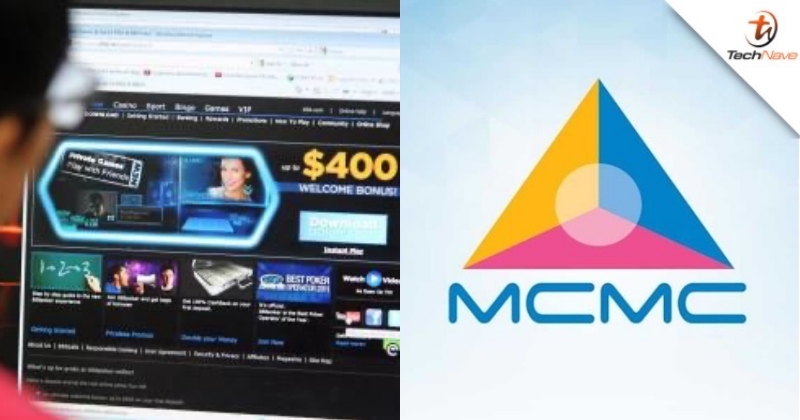Online Gambling in Malaysia has become a hot topic, showcasing a complex landscape that encompasses not only gaming enthusiasm but also legal, cultural, and technological challenges. Due to the increasing popularity of digital betting platforms, understanding the nuances of this industry is essential for enthusiasts, regulators, and investors alike. This article explores the multifaceted world of online gambling in Malaysia, revealing its history, current scenario, legal implications, and future outlook.
Online Gambling in Malaysia is a rapidly evolving sector that reflects broader global trends but also highlights unique local challenges and opportunities.
The Evolution of Online Gambling in Malaysia – From Past to Present

The history and growth of online gambling in Malaysia offer a compelling story of technological adaptation, cultural influence, and legal battles. It’s a reflection of how digital innovation has transformed traditional betting landscapes, making gambling more accessible and convenient.
As digital platforms gained popularity, many Malaysians sought alternatives to physical gambling venues, especially given strict local restrictions on land-based casinos and betting shops. The initial phase in the early 2000s saw the rise of offshore online gambling sites, which targeted Malaysian players despite the country’s strict anti-gambling laws. This underground industry became a significant part of the local economy, albeit with risks associated with unregulated operators.
Today, the landscape has become more sophisticated, with some legal betting platforms operating under strict regulations, and many underground websites constantly evolving to avoid detection. The balance between technological progress and legal enforcement plays a pivotal role in shaping the current state of online gambling in Malaysia.
Legal Framework and Restrictions in Malaysia
Malaysian law categorically prohibits most forms of gambling, especially online betting, under the Common Gaming Houses Act 1953 and the Betting Act 1953. The government maintains a firm stance against gambling, citing religious, cultural, and social concerns. Despite this, online gambling thrives through offshore operators, which often target Malaysian players.
The government’s approach involves stringent enforcement against illegal operators while occasionally considering licensing or regulations, primarily for sports betting and lotteries like Sports Toto or Magnum. But deep-seated cultural attitudes and religious beliefs, particularly Islam, influence the strict legal stance against gambling, complicating efforts to legalize or regulate online gambling domestically.
Impact of Regulations on Malaysians and the Industry
The legal restrictions create a paradox — while online gambling is illegal, millions of Malaysians still access offshore sites. This creates a risky environment where players risk legal repercussions and security issues, such as fraud or data breaches.
Conversely, the illicit nature of online gambling encourages a black market that can be exploited by criminal organizations. On the other hand, technological advancements have made this illegal activity more accessible and sophisticated. While some argue that regulation could generate government revenue and control the sector, others remain wary of moral and cultural implications.
In the future, Malaysia may consider regulated options for online gambling, balancing economic benefits against societal values. Until then, both operators and players navigate a landscape fraught with legal uncertainties.
Technologies Transforming Online Gambling in Malaysia – The Digital Revolution

Modern online gambling relies heavily on advanced technologies that enhance user experience, ensure fairness, and maintain security. Malaysia’s online gambling industry, whether legal or underground, has been significantly impacted by these innovations, making it more accessible and engaging for users.
Technologies such as mobile platforms, blockchain, and artificial intelligence have revolutionized the betting experience. These tools aid in creating transparent, secure, and user-friendly environments, attracting a broader segment of Malaysians into online gambling activities.
Mobile Gaming and Accessibility
The proliferation of smartphones has been a game-changer for online gambling in Malaysia. Thanks to mobile-friendly websites and dedicated apps, Malaysian players can access their favorite betting platforms anytime and anywhere.
Mobile technology has facilitated seamless payments, live betting, and real-time updates, greatly enhancing user engagement. This portability has enabled betting not just as a recreational activity but also as a way to cope with economic uncertainties or social pressures.
Moreover, mobile gambling apps often incorporate personalized interfaces that adapt to user preferences, fostering long-term loyalty. The ease of use and widespread smartphone penetration have expanded the industry’s reach across different demographic groups in Malaysia.
Blockchain and Cryptocurrency Integration
One of the most promising technological trends shaping online gambling is blockchain and cryptocurrency integration. Blockchain offers transparency and security, reducing concerns about fairness and fraud.
Cryptocurrencies such as Bitcoin and Ethereum are increasingly used as payment methods in Malaysian online gambling platforms. These digital currencies enable anonymous transactions, which is particularly attractive given the country’s regulatory environment.
Operators using blockchain technology can provide provably fair games, giving players assurances beyond traditional controls. While regulatory issues still pose challenges, this technology holds promising implications for the future of online gambling in Malaysia by enhancing trust and security.
Data Security and Artificial Intelligence
Security is an ongoing concern in online gambling, especially when personal and financial data are involved. Advanced encryption, firewalls, and biometric authentication safeguards are now standard.
Artificial intelligence (AI) enhances the user experience by personalizing game recommendations, detecting fraudulent activities, and managing responsible gambling practices. AI-driven analytics help operators understand gambling patterns, enabling more targeted marketing and risk management strategies.
In Malaysia, where gambling behavior is often driven by social and cultural factors, responsible gambling tools powered by AI can support healthier engagement, reducing addiction risks and promoting sustainability in the industry.
The Cultural and Social Dimensions of Online Gambling in Malaysia

Gambling in Malaysia is not merely an economic activity; it carries significant cultural and social implications rooted in religious beliefs and societal values. Understanding this dimension is crucial to grasping the full scope of the online gambling phenomenon.
Online gambling’s popularity exists amid a complex backdrop of religious prohibitions, social taboos, and economic interests. The country’s majority Muslim population largely views gambling as sinful, which influences public opinion and policymaking.
Nevertheless, the industry persists, often thriving underground or through offshore operators. This duality poses challenges for regulators and society, prompting debates about morality, individual freedom, and economic development.
Cultural Attitudes and Religious Influences
Islam, the religion of the majority of Malaysians, explicitly forbids gambling. This religious stance influences societal attitudes, prompting many to view gambling as morally wrong. Consequently, there is strong social stigma attached to gambling activities, pushing the industry underground.
Yet, despite religious and societal disapproval, gambling remains culturally ingrained in some communities, often associated with festivities, socializing, or economic necessity. Online gambling offers a covert way to participate, which feeds into the ongoing conflict between cultural norms and individual desires.
The Economic Impact and Society
The unregulated or illegal online gambling industry generates billions of ringgit annually, creating both economic opportunities and social challenges. Formal channels for gambling could generate tax revenue and create job opportunities but also risk encouraging addictive behaviors and financial hardship.
The social costs intertwined with gambling include increased rates of debt, family breakdowns, and mental health issues. Policymakers find it challenging to balance economic benefits with social responsibilities, especially within a society that values religious and moral standards.
Efforts Toward Responsible Gambling and Education
In response to these issues, some organizations and government agencies have initiated programs aimed at promoting responsible gambling. Campaigns focus on educating the public about risks and providing support for problem gamblers.
Technological tools, such as self-exclusion programs and spending limits, are also being integrated into online gambling platforms to encourage responsible behavior. However, implementation remains inconsistent, especially within unregulated online environments, highlighting the need for comprehensive strategies.
FAQs about Online Gambling in Malaysia

What is the legal status of online gambling in Malaysia?
Online gambling is largely illegal in Malaysia under existing laws like the Betting Act 1953. However, offshore platforms still attract Malaysian players, despite the legal risks involved.
Can Malaysians legally bet on online sports betting sites?
Some licensed local or government-approved betting operators like Sports Toto are legal, but most online sports betting sites are illegal without proper licensing, which Malaysia currently does not widely provide.
Are there any government initiatives to regulate online gambling?
Currently, Malaysia maintains a prohibition stance, but discussions about regulating or legalizing certain aspects of online gambling, such as sports betting, occasionally surface in policy debates.
Why do Malaysians continue to engage in online gambling despite legal restrictions?
With limited domestic options, many Malaysians access offshore sites that offer convenience, anonymity, and a wider variety of betting options, keeping the activity popular despite potential legal consequences.
How does online gambling impact Malaysian society?
Online gambling can lead to economic benefits like job creation and tax revenue if regulated, but it also poses social risks such as addiction, financial hardship, and increased cybercrime activity.
Conclusion
Online Gambling in Malaysia presents a paradox—while legally prohibited and culturally stigmatized, it remains a popular and growing activity driven by technological advancements and offshore operators. The industry underscores the tension between societal values, economic interests, and technological innovation. As Malaysia continues to grapple with these complexities, the future of online gambling will likely involve a delicate balance between regulation, technological integration, and social responsibility. Understanding these dynamics is essential for policymakers, players, and industry stakeholders aiming to navigate this evolving landscape effectively.
Key search Search: Online Casino Malaysia, Casino Online Malaysia, Malaysia Online Casino, Malaysia Casino Online, trusted online casino Malaysia, trusted casino online Malaysia,
citinow, citinow Malaysia
POSTER SEO_SIBATOOL

No comment